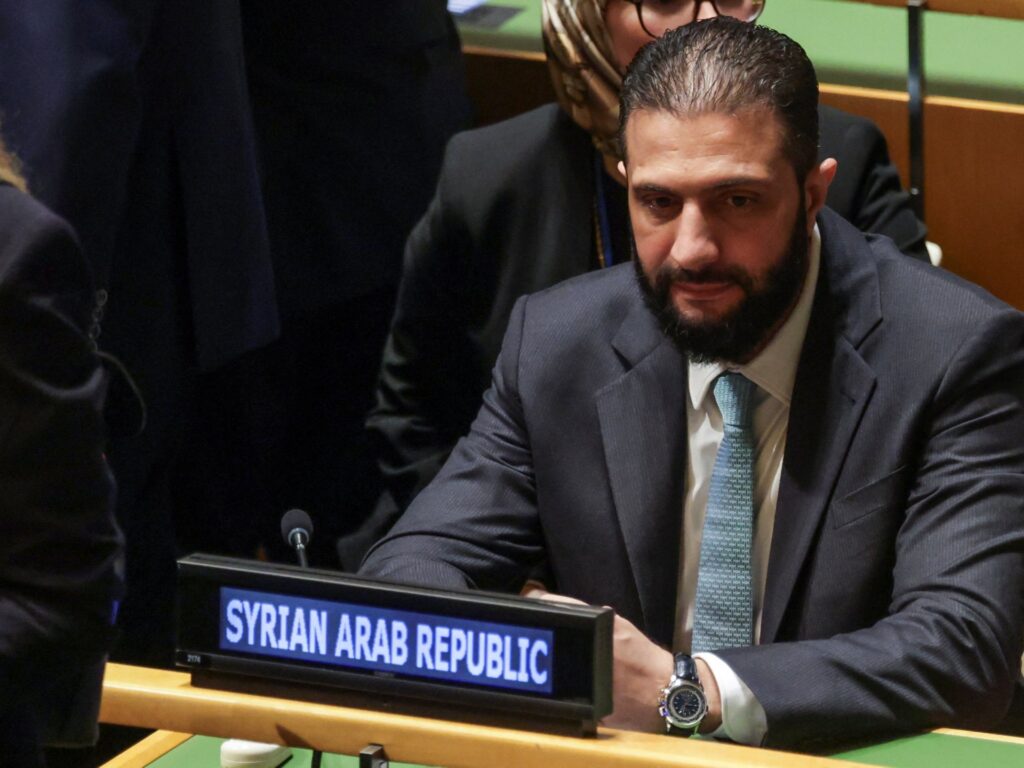Syria’s al-Sharaa voices hope for deal, warns of regional risks due to Israeli attempts to fragment country.
Published On 24 Sep 2025
Israel is close to striking a “de-escalation” agreement with Syria, after the latter’s President signalled that his country was “scared” of the former’s relentless attacks since the overthrow of Bashar al-Assad’s rule last year.
United States Special Envoy for Syria Tom Barrack said on Tuesday that the agreement would see Israel stopping its attacks on its neighbour, while Syria will agree to not move any machinery or heavy equipment near the Israeli border.
Recommended Stories
list of 3 itemsend of list
Barrack said that both sides were negotiating “in good faith” on the agreement, which had been slated for completion this week, but had been slowed down by the Rosh Hashana holiday – the Jewish New Year – this week. The agreement would serve as first step towards an eventual security deal, he said.
Speaking shortly before Barrack, Syrian President Ahmed al-Sharaa, whose forces toppled longtime autocrat ruler al-Assad back in December, voiced hope for a security deal, pointing out that his country had not created problems with Israel.
“We are scared of Israel, not the other way around,” he told an event of the Middle East Institute in New York.
“There are multiple risks with Israel stalling on the negotiations and insisting on violating our airspace and incursions into our territory,” he said.
“Jordan is under pressure, and any talk of partitioning Syria will hurt Iraq, will hurt Turkiye. That will take us all back to square one,” he added.
Al-Sharaa will be the first Syria leader to address the United Nations General Assembly (UNGA) on Wednesday in six decades.
Risks of fragmentation
Israel and Syria have been Middle East adversaries for decades, the enmity between the pair heightening during the 1967 Arab-Israeli war and Israel’s occupation of the Syrian Golan Heights.
Since Assad’s ouster, Israel has hobbled Syria’s attempts to get back on a stable footing, trashing a 1974 ceasefire agreement between the two states, striking Syrian military assets and sending troops to within 20 km (12 miles) of Damascus.
Al-Sharaa said last week that Israel had carried out more than 1,000 strikes on Syria and conducted more than 400 ground incursions.
Israel has alternately claimed that its strikes on Syria are aimed at preventing terrorism or protecting the country’s Druze minority, notably in the southern area of Suwayda where sectarian violence erupted in June. But Israel has brazenly bombed central Damascus as well.
Critics charge that Israel is seeking to fragment the country in a bid to keep it weak and exert its own dominance over the region.
Speaking on the sidelines of the United Nations General Assembly on Monday, al-Sharaa renewed his call to the US to formally lift sanctions imposed on his country to enable it to rebuild and held talks this week with US Secretary of State Marco Rubio.
Israel has been lobbying US lawmakers and policymakers at the State Department for months to keep sanctions in place.
In a historical twist of fate for the ages, al-Sharaa sat down for interview this week, whilst in New York for the UNGA, with former US General David Petraeus, who once arrested the then rebel righter and led American forces during the invasion of Iraq, later becoming the director of the CIA.
